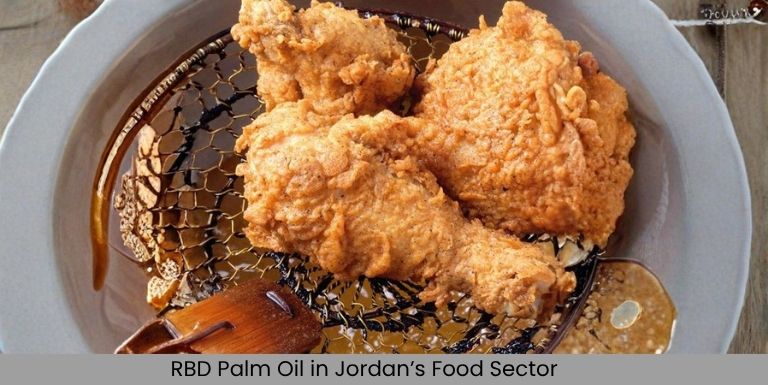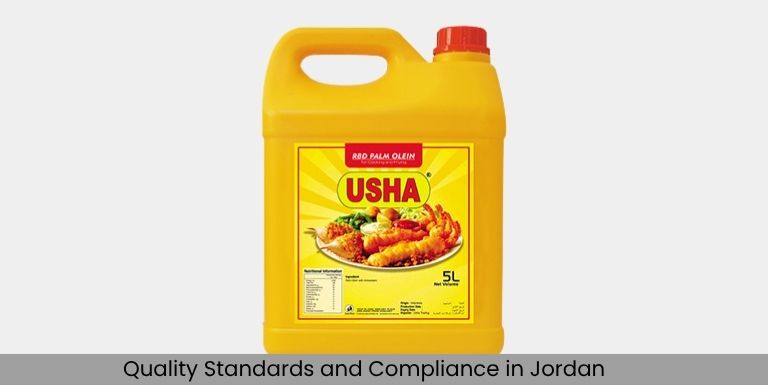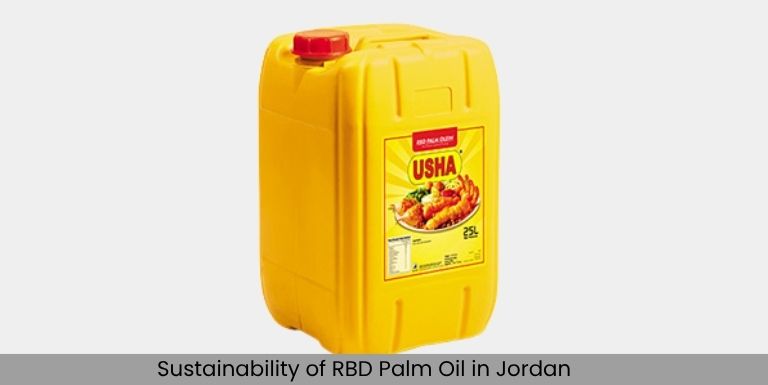Objective
This article explores how RBD Palm Oil in Jordan plays a vital role across food and non-food industries. It explains the importance of its variants — CP6, CP8, and CP10 — while emphasizing quality standards, sustainability, and future growth opportunities that strengthen Jordan’s industrial ecosystem.
Introduction to RBD Palm Oil and Its Economic Significance in Jordan
Refined, Bleached, and Deodorized (RBD) Palm Oil is one of the most versatile and widely used edible oils in the global market. In Jordan, RBD Palm Oil serves as a foundation for multiple industries due to its exceptional thermal stability, neutral flavor, and long shelf life. It undergoes refining, bleaching, and deodorization processes to remove impurities and produce a clear, odorless oil ideal for industrial use.
Jordan relies on high-quality RBD Palm Oil imports from countries like Malaysia and Indonesia to support its food manufacturing, soap, and oleochemical sectors. Its versatility makes it an essential input for industrial operations, from large-scale food production to cosmetic and chemical manufacturing. As Jordan’s economy continues to grow, RBD Palm Oil remains a crucial factor driving the development of efficient production systems.

Key Industrial Sectors Utilizing RBD Palm Oil in Jordan
RBD Palm Oil in Jordan has applications that go beyond the food sector. Its performance and cost efficiency have made it a preferred ingredient in both edible and non-edible product lines.
RBD Oil in Food Processing and Manufacturing
RBD Palm Oil provides the texture, stability, and consistency required in processed foods such as instant noodles, snacks, and frozen products. Its oxidative resistance ensures longer shelf life and better preservation of taste.
RBD Palm Oil in Confectionery and Bakery Applications
Used in pastries, cakes, biscuits, and creams, RBD Palm Oil contributes to rich texture and enhanced flavor. Its semi-solid nature allows manufacturers to produce margarine, shortening, and chocolate fillings with perfect consistency.
Palm Oil in Soap and Detergent Industry
RBD Palm Oil’s high saponification value makes it ideal for soap and detergent production. Jordanian manufacturers prefer it for its hardness, lather quality, and cost-effectiveness.
RBD Olein in Oleochemicals and Cosmetics
RBD Palm Oil derivatives, such as fatty acids and glycerin, are used in lotions, creams, and personal care products. These derivatives are also employed in candles, lubricants, and surface polishes due to their smooth finish and biodegradability.

RBD Palm Oil in the Food Industry of Jordan
The Jordan’s food industry is the largest consumer of RBD Palm Oil. Its high oxidative stability allows it to withstand prolonged high-temperature cooking and frying, making it ideal for food manufacturing.
RBD Frying Oils and Margarines
RBD Palm Oil maintains its stability even after multiple frying cycles, making it perfect for fast-food chains, snack producers, and food service providers in Jordan. It retains food flavor without producing off-odors or breakdown residues.
Palm Oil in Bakery and Confectionery Products
In baking and confectionery, RBD Palm Oil provides desirable texture and aeration while minimizing the need for hydrogenated fats. It enables manufacturers to deliver healthier, trans-fat-free options.
RBD Oil Shelf Life and Storage Benefits
Its natural resistance to oxidation ensures freshness and flavor stability in packaged foods, helping Jordanian producers maintain consistent quality during distribution and export.
Health Considerations of RBD Palm Oil
RBD Palm Oil is free from cholesterol and trans fats when refined properly. Many food producers in Jordan blend it with sunflower or soybean oils to create balanced and nutritionally aligned cooking solutions.
RBD Palm Oil in Jordan’s Non-Food Industries
Beyond food production, RBD Palm Oil is a key input for several non-food industrial processes of Jordan, proving its versatility and economic importance.
Soap and Personal Care Manufacturing
RBD Palm Oil serves as the base for bar and liquid soaps, shampoos, and detergents, offering smooth texture and effective cleansing properties. It adds a creamy lather and hardness to soap bars, ensuring long-lasting use.
Industrial Lubricants and Waxes
Its lubricating nature and biodegradability make it suitable for eco-friendly industrial lubricants and waxes, reducing dependence on synthetic petroleum-based materials.
Biodiesel and Renewable Applications
Although in its early stages, Jordan’s interest in biofuel production positions palm oil as a renewable energy source. RBD Palm Oil can be processed into biodiesel, contributing to lower carbon emissions and energy diversification.
Candles and Polishes
The oil’s derivatives provide smoothness, gloss, and burn stability, making it an ideal ingredient for candles, floor polishes, and decorative waxes.
Variants of RBD Palm Oil in Jordan: CP6, CP8, and CP10
Jordan’s industries primarily use three types of RBD Palm Olein – CP6, CP8, and CP10 each suited to specific processing and climatic needs.
RBD Palm Olein CP6
With a lower cloud point of approximately 6°C, CP6 remains clear and fluid even in cooler environments. In Jordan, it is used in retail bottled oils and premium food preparations where clarity and visual appeal are vital.
RBD Palm Olein CP8
CP8 is the most widely used variant across Jordan’s food and snack manufacturing industries. Its balance of clarity, stability, and cost efficiency makes it ideal for deep-frying and continuous cooking operations in commercial kitchens and factories.
RBD Palm Olein CP10
Known for its higher oxidative stability, CP10 is preferred by large-scale industrial food producers in Jordan for heavy-duty frying applications. It performs exceptionally well under repeated heating and high-temperature conditions, reducing oil wastage and improving efficiency.
Comparison Overview
| Variant | Cloud Point | Key Applications in Jordan | Primary Benefits |
| CP6 | ~6°C | Bottled oils, retail cooking | Clear appearance, stable in cool climates |
| CP8 | ~8°C | Restaurants, bakeries, snacks | Cost-effective, balanced clarity and stability |
| CP10 | ~10°C | Industrial frying, food manufacturing | High thermal stability, longer frying life |
Selection in Jordanian Industries
The choice between CP6, CP8, and CP10 in Jordan depends on temperature, product type, and production volume. CP8 dominates due to its performance consistency and affordability, while CP10 is favored for large-scale manufacturing and CP6 for premium or retail segments.

RBD Palm Oil Quality Standards and Supply Chain in Jordan
Maintaining quality and purity is a top priority for Jordan’s palm oil imports. The Jordan Food and Drug Administration (JFDA) enforces strict guidelines to ensure all edible oils meet international safety and hygiene standards.
Certifications and Compliance of RBD Palm Oil
Imported RBD Palm Oil must adhere to HACCP and RSPO certification norms. These certifications guarantee that the oil is safe for human consumption and ethically sourced from plantations.
RBD Palm Oil Packaging and Storage
RBD Palm Oil reaches Jordan through the Port of Aqaba, transported in bulk tankers or flexitanks. It is stored in stainless steel tanks to maintain stability and later packaged into consumer and industrial formats.
Efficient Logistics of RBD Palm Oil in Jordan
Jordan’s distribution network ensures that palm oil is delivered across the country’s major cities, supporting both small-scale manufacturers and large industrial clients efficiently.
Market Trends and Growth Opportunities of RBD Palm Oil in Jordan
The Jordanian market for RBD Palm Oil continues to expand, driven by lifestyle changes, urbanization, and growing industrial diversification.
Rising Demand for Processed Foods
The increasing popularity of fast food, snacks, and ready-to-eat meals has boosted the use of RBD Palm Oil in commercial kitchens and food factories.
Regional Export Opportunities
Jordan’s strategic location positions it as a re-export hub for palm oil-based products to neighboring countries, including Iraq, Lebanon, and Palestine.
Focus on Sustainability
More importers and manufacturers are turning toward RSPO-certified suppliers, ensuring environmentally responsible palm oil sourcing.
Innovation and Technological Upgrades
Local refineries and blending facilities are adopting advanced refining technologies to enhance oil purity, reduce energy consumption, and minimize processing waste.

Environmental and Sustainability Perspectives of RBD Palm Oil in Jordan
As global attention grows toward ethical sourcing and environmental conservation, Jordan’s importers are making significant efforts to promote sustainability in the palm oil trade.
Responsible Sourcing
Jordanian importers increasingly choose suppliers adhering to RSPO standards to minimize deforestation and support fair labor practices.
Eco-Friendly Industrial Practices
RBD Palm Oil is being used to develop biodegradable lubricants and cleaning agents, offering greener alternatives to conventional petrochemical products.
Reducing Environmental Impact
By optimizing the use of CP10 variant oils in frying and manufacturing, industries can reduce oil waste, lower energy usage, and minimize overall environmental footprints.

Conclusion: The Future of RBD Palm Oil in Jordan’s Industrial Landscape
RBD Palm Oil continues to play a crucial role in shaping Jordan’s industrial development. Its wide range of applications, from food processing to cosmetics and lubricants, reflects its unmatched versatility and cost efficiency. The variants – CP6, CP8, and CP10 provide Jordanian manufacturers with flexibility to adapt to different production environments and consumer needs.
As Jordan moves toward a more sustainable and innovation-driven future, RBD Palm Oil is expected to remain a key component in industrial growth. Advancements in refining technologies, sustainability initiatives, and regional trade integration will further enhance its importance in Jordan’s economic and environmental framework.
FAQs About RBD Palm Oil in Jordan
What are the main uses of RBD Palm Oil in Jordan?
It is widely used in Jordan’s food, bakery, and soap industries. It also serves as a base for cosmetics, candles, lubricants, and other industrial applications.
What do CP6, CP8, and CP10 mean in RBD Palm Oil?
These indicate the oil’s cloud point temperature — CP6 (~6°C), CP8 (~8°C), and CP10 (~10°C). Lower cloud points suit cooler climates, while higher ones provide better frying stability.
Which variant of RBD Palm Oil is most used in Jordan?
CP8 is the most commonly used variant due to its balance between clarity, oxidation stability, and affordability, ideal for both food manufacturing and restaurant use.
Is RBD Palm Oil safe and healthy?
Yes, when refined properly, it meets global safety standards and contains no cholesterol or trans fats. It’s stable, clean, and suitable for everyday food production.
How does RBD Palm Oil contribute to Jordan’s economy?
It supports industrial growth, job creation, and export opportunities while offering cost-effective alternatives to other edible oils.
Author Bio

Sales Manager
Muhammad Usman, Sales Manager at Usha Edible Oil, combines years of industry experience with a strong focus on customer relationships. His expertise ensures that Usha Edible Oil delivers high-quality products, including RBD Palm Oil (CP6, CP8 and CP10), RBD Coconut Oil, Specialty Fats, Vegetable Shortening, Vegetable Ghee, and Margarine, to meet the diverse needs of global markets.
With a commitment to excellence, Muhammad continues to lead Usha Edible Oil in providing innovative and reliable vegetable oils, specialty fats, vegetable shortening, vegetable ghee, margarine export to various countries worldwide including Saudi Arabia, United Arab Emirates (UAE), Egypt, Syria, Qatar, Kuwait, Oman, Bahrain, Yemen, Iraq, Iran, Jordan, Lebanon, Palestine, Turkey, Sudan, solidifying its position as a trusted manufacturer, exporter, and wholesale supplier in the food industry.
